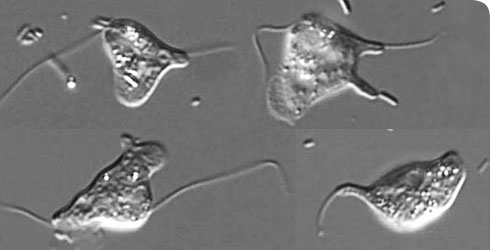Cercomonas clavideferens
Cercomonas clavideferens is a protozoa, a single celled organism, about 20 microns (thousandths of a millimetre) long, only visible under a powerful microscope.
Cercomonas clavideferens is abundant in soils and freshwater sediments, but has not been found alive in the sea. There are probably millions of these organisms in every kilogram of soil.
Cercomonas clavideferens is a voracious predator of bacteria, but probably eats a much wider range of organisms. Some Cercomonas species are known to gang up on and kill nematode worms, many times their size.
Species detail
Cercomonas clavideferens has two flagella, one pointing in the direction of movement and one trailing behind the cell. These can be seen as thin projections extending away from the cell in the photographs above. The flagella are about twice as long as the cell and are used for locomotion, feeding, and probably sensing the cell’s immediate environment.
-

Taxonomy
Find out more about the taxonomic ranks to which Cercomonas clavideferens belongs.
-

Distribution and ecology
Discover the types of habitat that Cercomonas clavideferens is known from, why it is important in microbial food webs and how understanding this species and its wider family can help us learn how environments 'work'. Find out about the feeding patterns of the species.
-

Biology
Learn about the different forms of Cercomonas clavideferens and ability of the cells to join together and fuse to form multicellular masses.
-

References
Get reference material for Cercomonas clavideferens.
Images
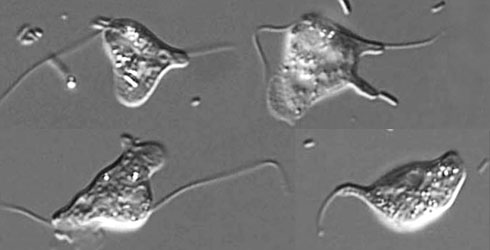
An SEM of the moving, feeding forms of Cercomonas clavideferens.
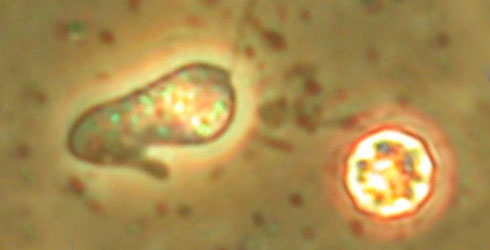
The cyst form of Cercomonas clavideferens which can survive long periods of dessication and other unfavourable conditions.
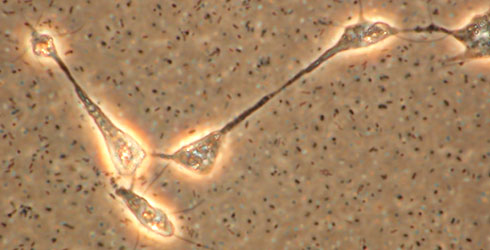
A multicellular plasmodia form of Cercomonas clavideferens showing individual cells joined by strands of cytoplasm.
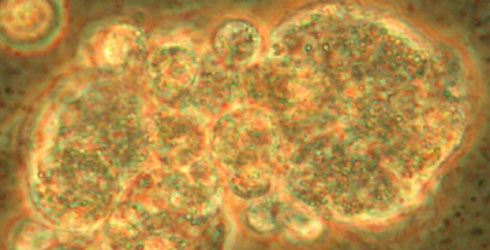
A multicelluar plasmodia form of Cercomonas clavideferens showing cells combined into a single rounded mass.
Author
Dr David Bass
Biomedical parasitology researcher, Department of Zoology.
